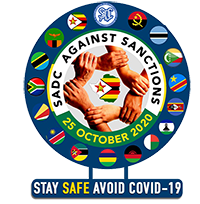Mabasa Sasa
There are several variant stories on Ernesto “Che” Guevara’s last moments on this Earth.
One that was propagated very early on by the Western propaganda machine was that he was cowering and full of regret after living his years out at the forefront of the fight against imperialism in Latin America and, briefly, Africa.
That version claims that after Che’s capture and murder in October 1967, General Ovando, Chief of the Bolivian Armed Forces, declared that the revolutionary had died in battle.
Gen Ovando claimed that as Che was dying he declared: “I am Che Guevara and I have failed.”
Some people still accept these as Che’s dying words, but most researchers, historians and biographers have discounted the statement as lousy propaganda – which it probably is.
Another variation is that his last words were to Colonel Arnaldo Saucedo Parada, a senior intelligence officer who delivered the official report on Che’s final moments.
He recorded those last words as: “I knew you were going to shoot me; I should never have been taken alive.
“Tell Fidel (Castro) that this failure does not mean the end of the revolution, that it will triumph elsewhere.
“Tell Aleida (Che’s wife) to forget this, remarry and be happy, and keep the children studying. Ask the soldiers (his executioners) to aim well.”
Historians are generally divided on the accuracy of these words, but they certainly sound more believable than Gen Ovando’s claims.
However, the version that Che supporters tend to believe is – naturally – more heroic but perhaps less poetic than those recorded by Col Saucedo Parada.
That version says his last words were to his executioner, Sergeant Jaime Terán.
But even that version has its own competing versions with some saying Sgt Terán volunteered to kill Che while others say the soldiers drew lots and it fell on him to carry out the ignominious task of murdering a revolutionary.
That version says Che’s last words where when the executioner walked into the cell where he was being kept prisoner, a few moments after his comrades had been murdered.
He reportedly told Sgt Terán, “I know you are here to kill me. Shoot, coward, you are only going to kill a man.” Others say he simply said: “Know this now, you are killing a man.”
The idea of a dying man telling his comrades to soldier on, for his wife to settle down with someone else and ensure the children get an education; and saying his executioners must aim well and kill him quickly – that is the stuff of poetry.
Or a man telling his executioner that he will kill but a man and the idea will live on – that is the stuff of legend.
What do you do to a man who has an idea?
Thomas Sankara, who has been called “Africa’s Che”, was another man with an idea.
Blaise Compaoré, the present leader of Burkina Faso (and a man who voted with the US and Britain at the UN Security Council in 2008 to impose sanctions on Zimbabwe as a precursor to a military invasion) killed Sankara in the belief that they could extinguish the ideas of liberation and empowerment that he was giving the youth of Africa.
There is other interesting similarity between the deaths of Che and Sankara.
Che was murdered on October 16, 1967; Sanakara was murder almost exactly 20 years to the day later – on October 15, 1987.
Needless to say, both were victims of counter-revolutionaries.
A week before his own murder and at commemorations to mark two decades since Che’s murder, Sankara delivered a speech in which he declared: “Ideas cannot be killed, ideas never die.”
It is a lesson that the oppressor has never understood – that ideas just cannot be killed.
From ancient times when people were thrown in lions’ dens, to the Dark Ages when the stake and rack were the preferred methods of getting rid of unwanted people, to the present times when the Ches, Sankaras and Lumumbas of this world are pumped full of bullets – ideas just cannot be killed.
Ideas cannot bleed, they cannot be jailed; they are bulletproof.
Zimbabwe has an idea.
Its idea is that the people of Zimbabwe must live with dignity and must be given the chance to chart their own destiny without the interference of Western powers.
It is an idea that Sadc believes in, one that the region says should be supported to the hilt.
This is the idea behind the October 25, 2019 Solidarity Day Against Sanctions on Zimbabwe.
For nearly two decades now, Western powers have tried to use sanctions to kill the idea of a sovereign Zimbabwe that has the right to empower its people and stand as an equal in the comity of nations.
Sanctions have failed to kill that idea. It is an idea that Africa is coming alive to.
The sanctions must go!





